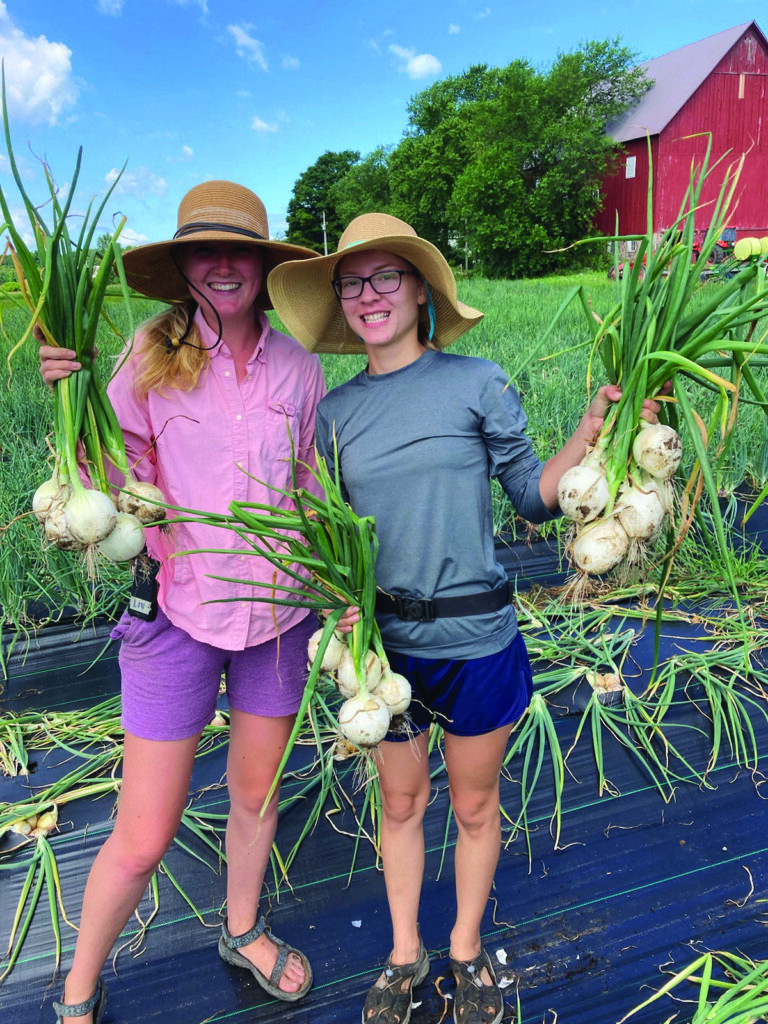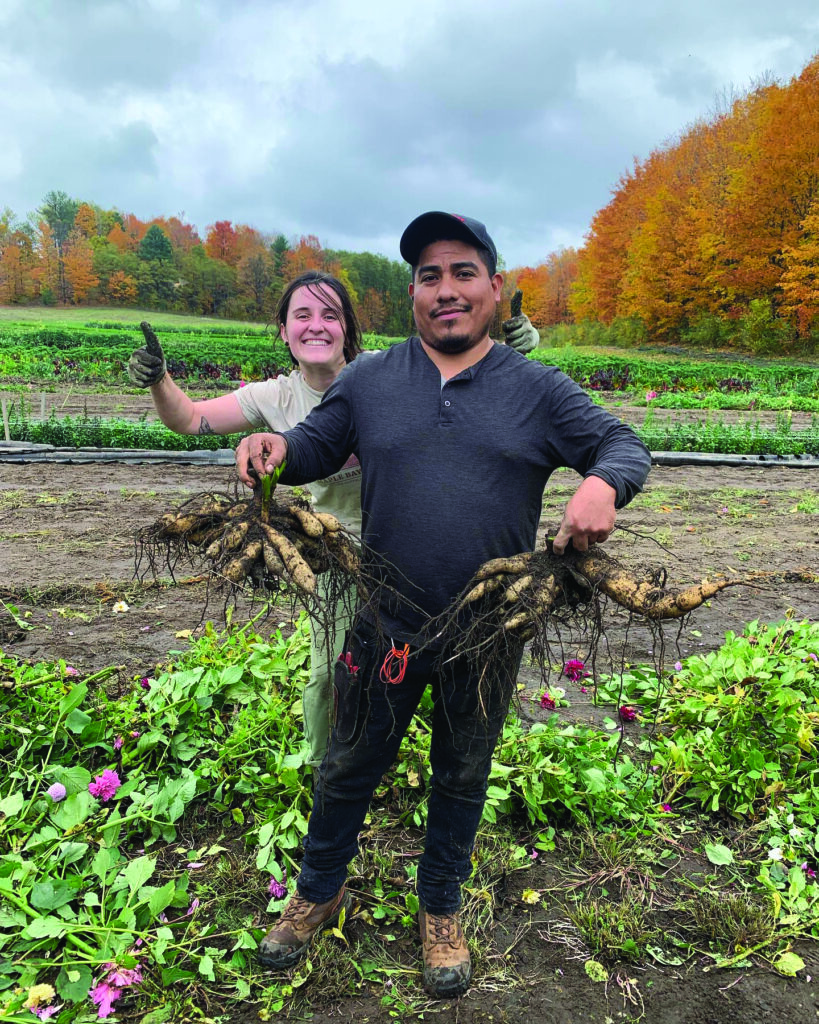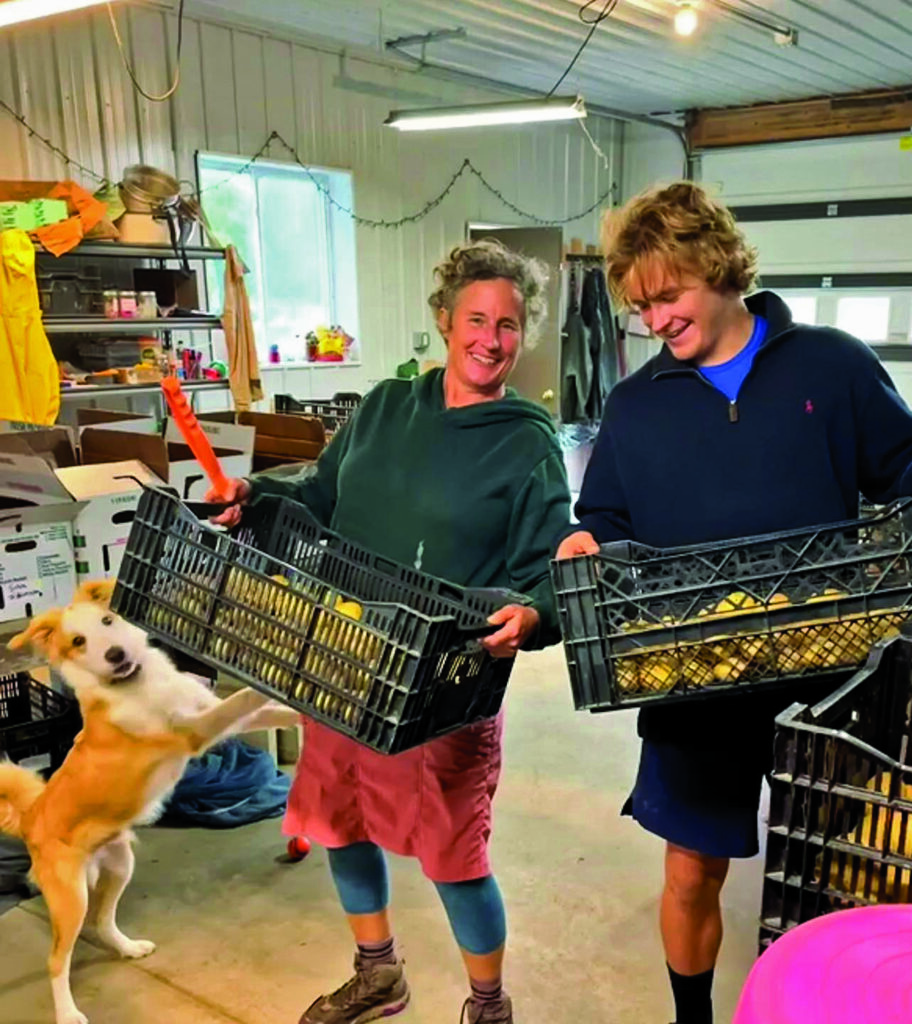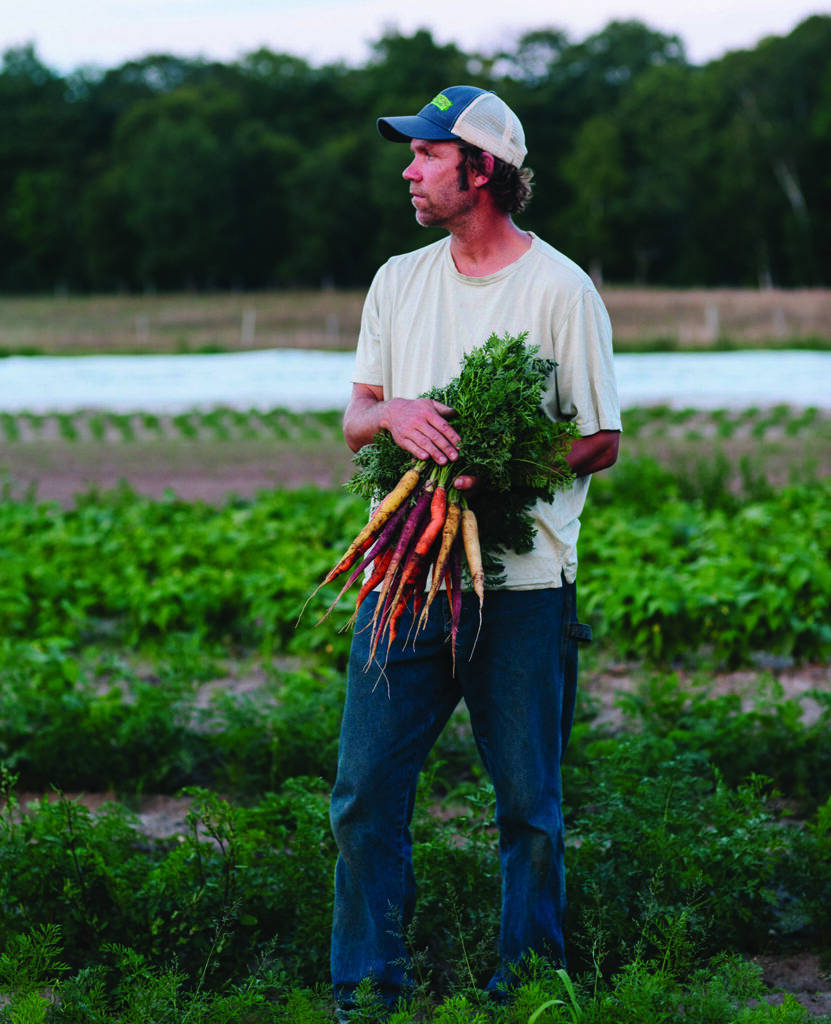Year-Round Local
How our local farms keep our stores stocked in all seasons


Oryana takes great pride in supporting our local organic growers. This practice has always been a part of the core philosophy upon which our co-op stands. Since the growing season in Northwest Michigan is relatively short, we once had to rely on nationally-grown organic produce to tide us over during the winter months. As dedicated as we are to our local growers, members and shoppers still expected to be able to buy their carrots and celery in January.
But in the last decade or so, our farmers have been upgrading and expanding their operations to enable them to not only continue supplying Oryana through the bleak months, but to continue growing food.
Lakeview Hill Farm in Leelanau County is one great example. The farm utilizes hoophouses, also known as caterpillar tunnels, which are smaller than a traditional hoop. Using these structures, they are able to prolong the growing season for all crops as well as offer Oryana heat-loving crops earlier in the season. It also allows them to offer some of their key crops like greens, microgreens, bunching greens, bok choy, celery, and more, all winter long.
According to Bailey Samp, co-founder of Lakeview Hills, “Using season extension is essential for the success of small farms in a region like ours. It allows us to have a steady income year-round, retain employees through the winter, have consistent and reliable crops, and retain customers. Not only are we able to grow through the winter utilizing heated greenhouses and passive-solar cat tunnels, but we implement crop storage techniques to offer certain root crops (carrots, onions, garlic) through the beginning of winter. For example, we store vented carrot bags in apple crates in the walk-in cooler until ready to be sold, and use ‘curing’ processes for crops like onions and garlic.”
Meadowlark Farm in Leelanau County, which is celebrating 20 years of winter growing, also utilizes tunnels. Jenny Tutlis and her husband Jon Watts utilize low tunnels in the field and grow in three unheated hoophouses. They have a winter squash drying room, a carrot storage room, and a root cellar for potatoes. They use the dry room to cure garlic, onions, and winter squash, and also to dry herbs and popcorn. Meadowlark primarily provides bagged potatoes and carrots and baby ginger to Oryana in the winter and spring months.


At Second Spring Farm in Leelanau County, Reid Johnston specializes in growing and storing various hearty staple vegetables known as winter storage crops. They consist of sweet potatoes, onions, garlic, cabbage, potatoes, beets, winter squash, leeks, parsnips, and shallots. The all-star of the line-up, according to Reid, is the winter carrots, which are extra sweet with the perfect balance of tenderness and crunch. Reid says they differ from summer carrots because they are grown in colder soil temperatures and stored at just above freezing temperatures. “Winter carrots are the perfect vegetable to discern the flavor superiority of an organically grown vegetable,” says Reid. They are able to offer storage vegetables, for the most part year-round, due to their multiple cold storage rooms that allow them to keep each vegetable at its ideal temperature and humidity. Like the carrots, most of the items actually improve through their storage life.
Beautiful Providence Organic Farm in Central Lake provides us with a bounty of amazing vegetables throughout the year. Ryan and Andrea Romeyn bring a little sunshine to the dark days of winter by supplying Oryana with a wide variety of storage vegetables during the cold months. They store everything in three huge coolers and start with about 160,000 lbs of vegetables in November.
The fresh bounty from Providence includes: red and green cabbages, orange and rainbow carrots, white, red and purple daikon and watermelon radishes, rutabagas, purple, red, pinto and gold potatoes, fingerling potatoes, red and gold storage onions, shallots, turnips, leeks, collards, and parsnips.
We are so grateful to all our local farms for the food they supply in all seasons, but there is something extra special about being able to enjoy a delicious winter meal made with components you know did not have to travel far to get to your plate. Support your local farms when you can and help keep our community thriving with a robust local economy and healthy, nourishing food for your family.